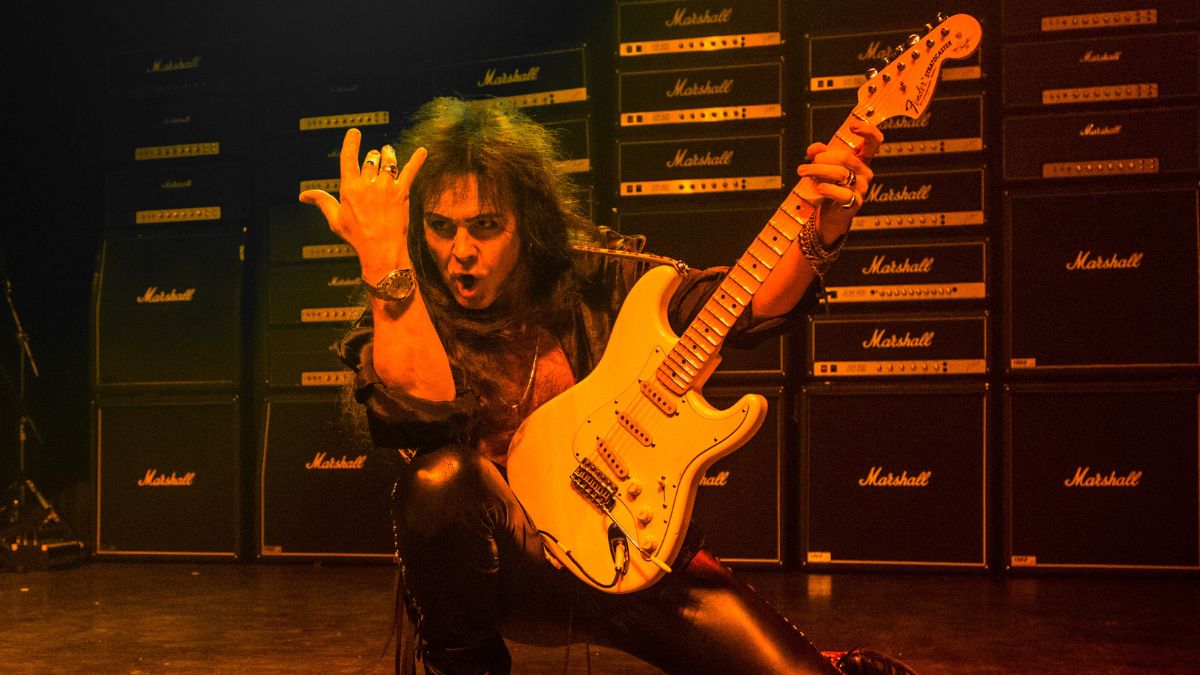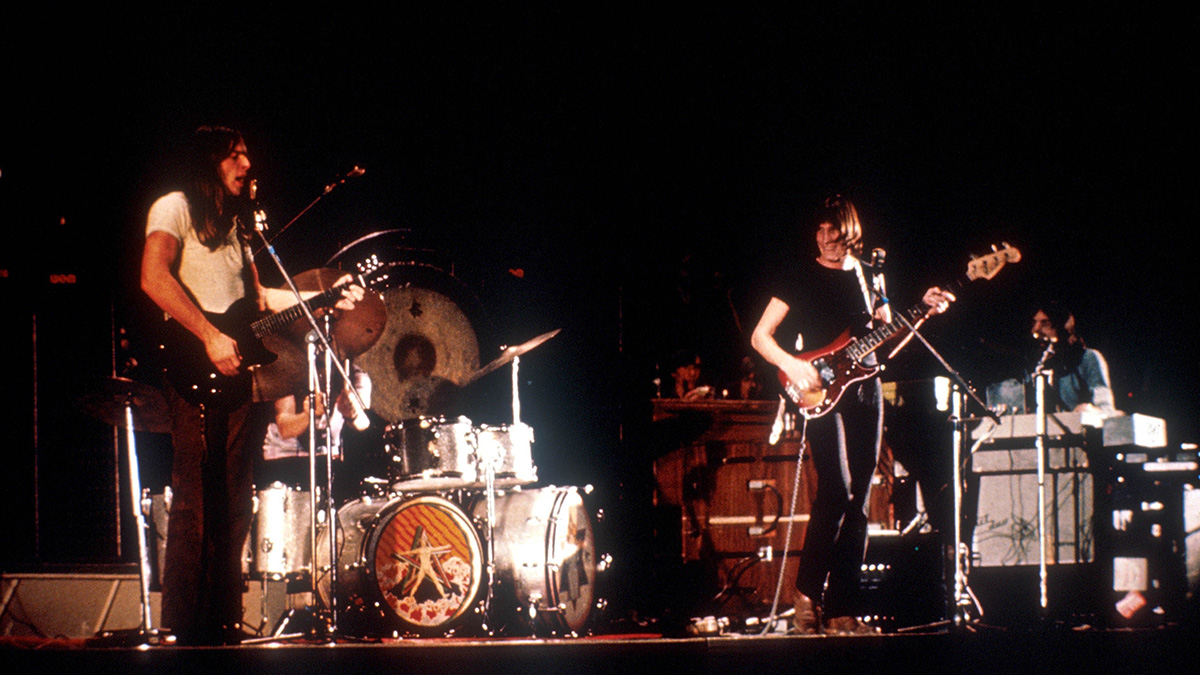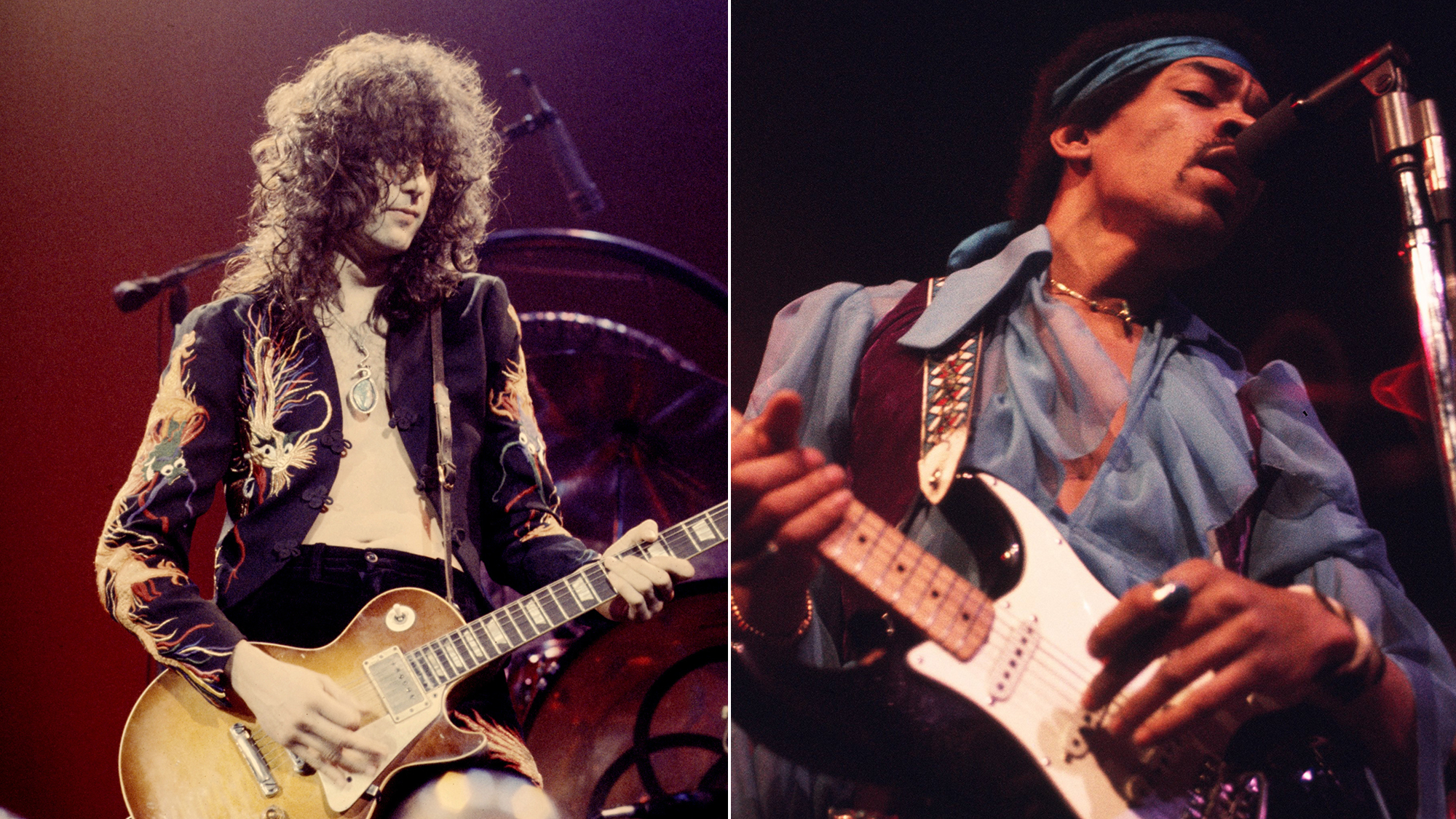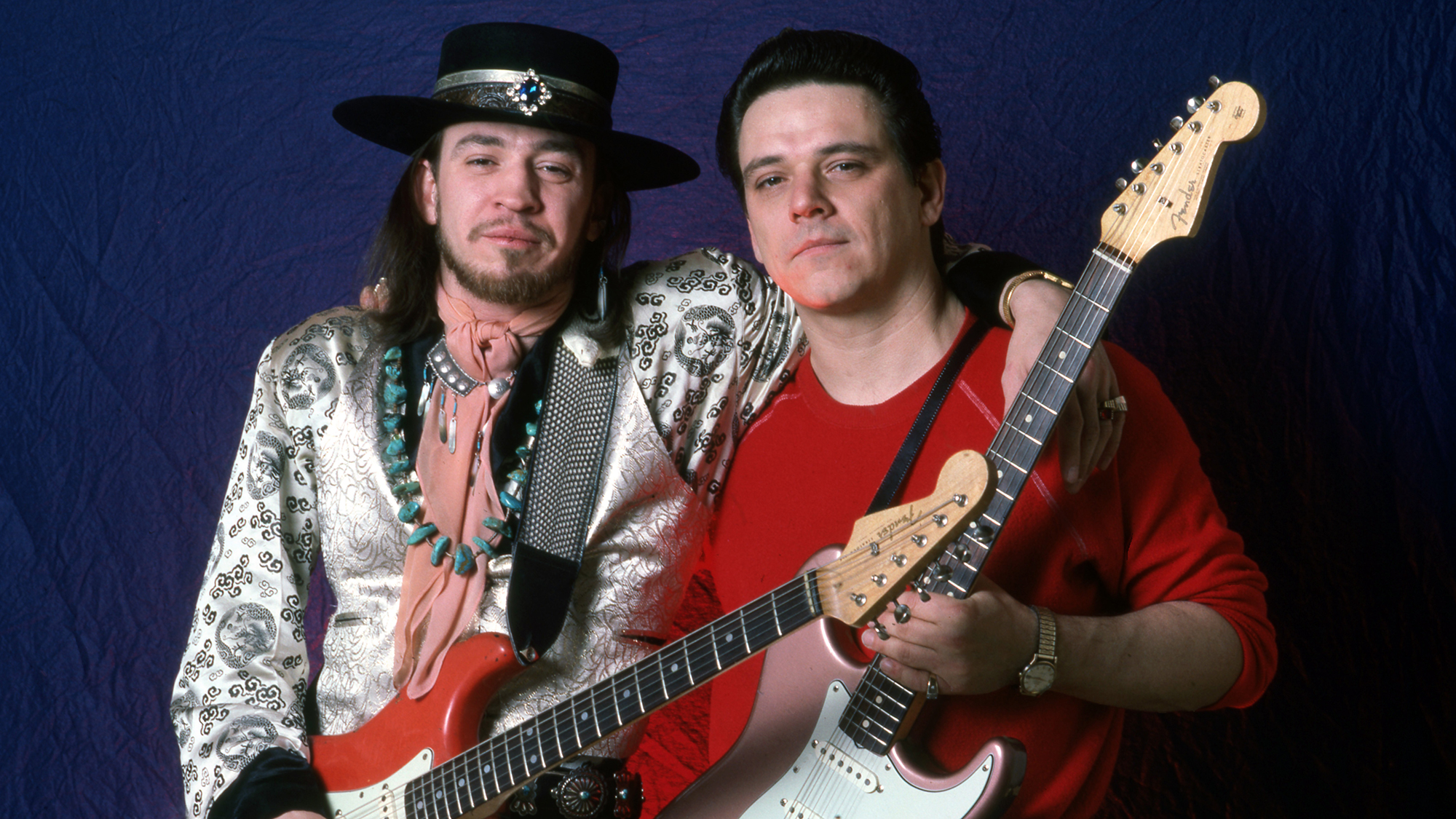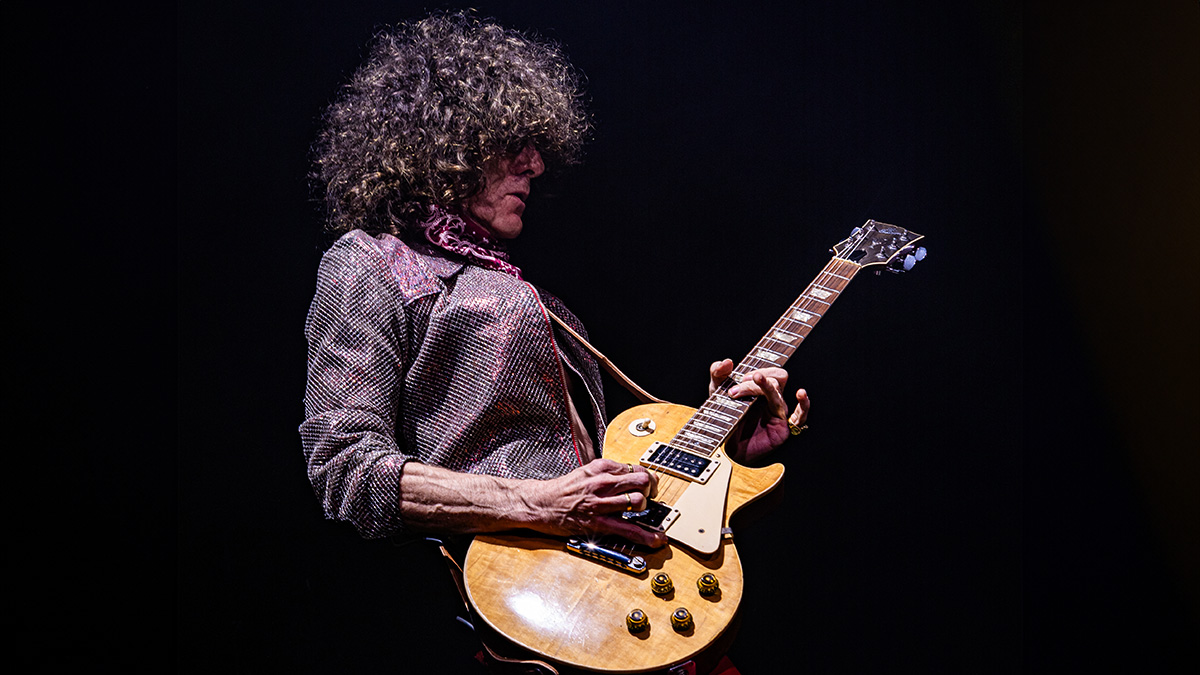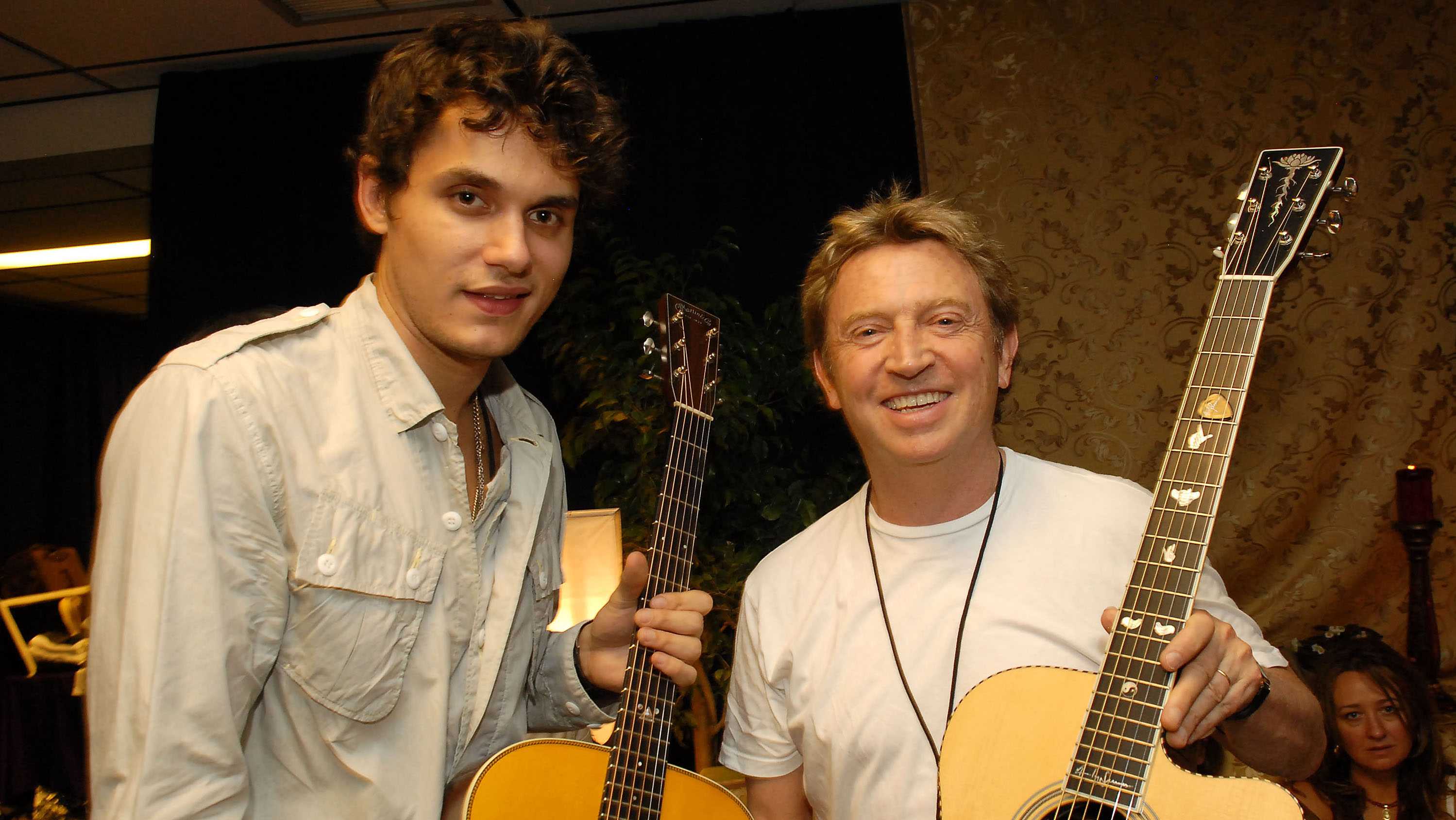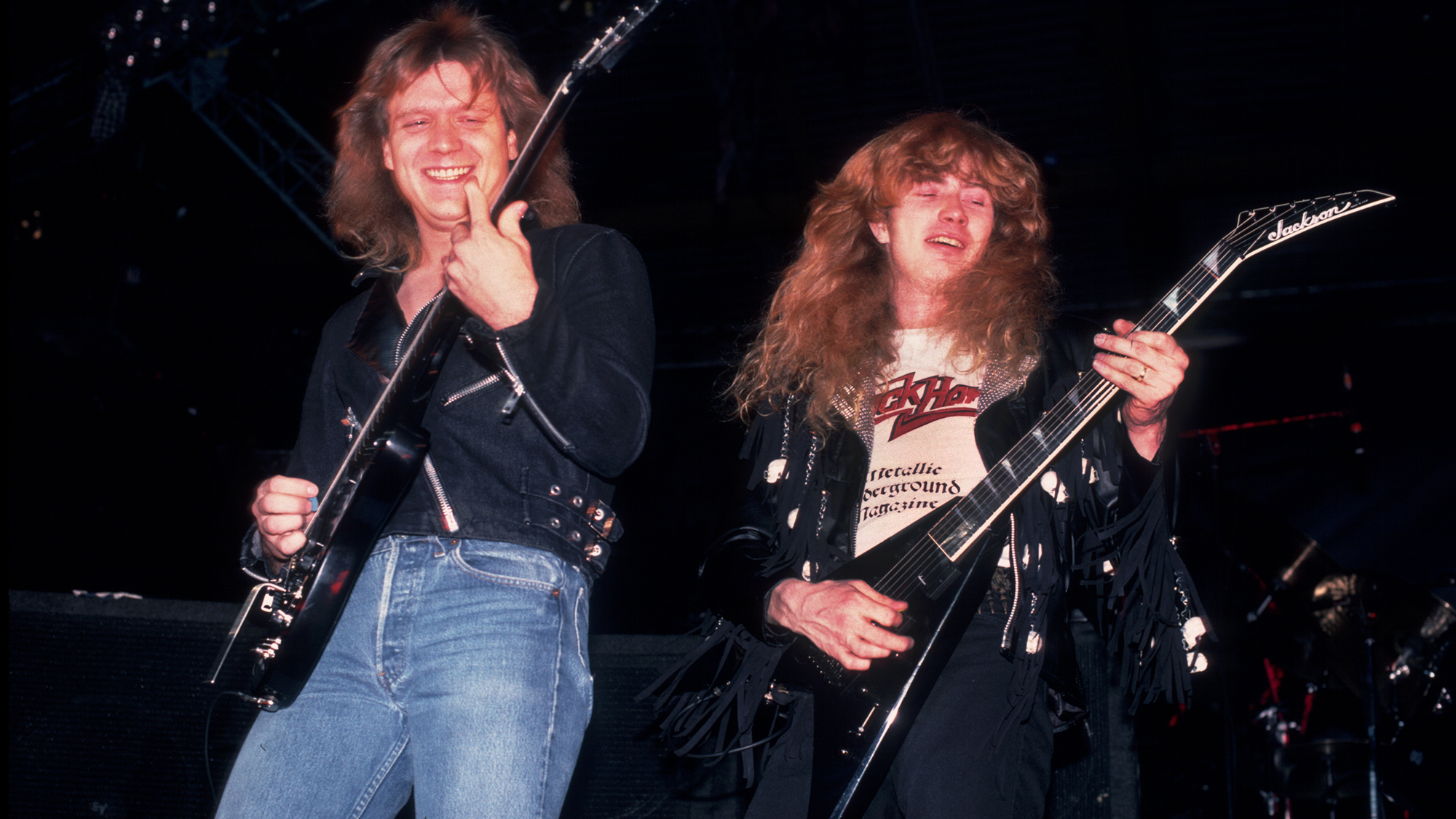The Latest Buzz: Ode to Brian Setzer, the Not-So-Stray Cat
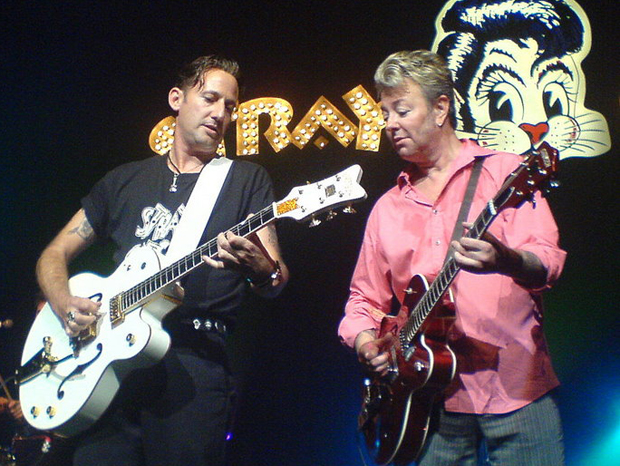
Every boy has a hero, someone they want to be like and spend numerous hours trying to emulate.
In 1991, I was invited by my girlfriend to see a band she thought I would enjoy. I was very into 1950s rock 'n' roll. I wore blue jeans and rolled-up white T-shirts and I had just bought myself a 1956 Buick Special, red with a white top, four doors, a little rusty but the original tube radio still worked…I was sold.
She bought tickets for my birthday to see a band that was playing at the Bacchanal, an old club that existed off of Claremont Mesa Boulevard. The band was called the Stray Cats. I had a recollection of them from the early '80s, but did not know much about them.
My girlfriend and I went into the club early and got a great place right in front of the stage. When the show began, three lonely musicians took the stage. An upright bass, a very small drum setup, and a guitar and amp were the all the back line provided for this tiny trio. I don’t know exactly what happened after that, all I can say was that I was rocked out of my socks.
That night struck a chord in me that has never stopped ringing. I dropped out of school the next day and set out to start my own group. My friends were studying to be doctors, lawyers and responsible business people. I wanted to start my own version of the Stray Cats, but more importantly, I wanted to be Brian Setzer.
Setzer was born on April 10, 1959, in Massapequa, New York, and raised in Long Island. In 1979 Brian formed a rockabilly cover band with his brother Gary on drums and Bob Beecher on bass, calling themselves the Tom Cats. Brian left in early 1980 to join school pals Jim McDonald and Lee Drucker to form the Stray Cats.
By the summer they left the U.S. and headed to Britain where they thought people might be hipper to their sound. Following a gig at London's The Venue, they encountered Dave Edmunds in their dressing room. Famed as both a performer and producer, Edmunds told them he'd like to work with them before a record label or manager (that probably didn't know what they were doing) screwed them all up.
Get The Pick Newsletter
All the latest guitar news, interviews, lessons, reviews, deals and more, direct to your inbox!
They signed to Arista Records and over five days in October they recorded their first album at the Eden and Jam Studios in London. The following month, “Runaway Boys” was released as their first single, and the rest his history.
“Runaway Boys” is a neo-rockabilly classic. It was perfect for the time and helped generate a new band of followers for the group and the genre. They returned to the U.S. and with the strength generated from their first hit in England, they charted in the U.S. as well with “Runaway Boys” and had even greater success with songs such as “Rock this Town” and “Stray Cat Strut,” which went to number three in 1983.
Brian, Lee, and Jim had successfully and single-handedly brought back the rockabilly sound reminiscent of the days of Elvis Presley, Buddy Holly and Eddie Cochran.
After many years of success, Brian and the Stray Cats went their separate ways. Setzer had a few solo album releases but eventually went on to his next idea. Brian had a huge love for jazz standards and big band music. He decided to form his own big band and do standards and originals lead by an electric guitar. Brian put together The Brian Setzer Orchestra, aka BSO.
BSO originally got signed to Hollywood Records. They had moderate success with the first album release but because of the great expense of a 17-piece orchestra and no major hit, the label dropped Setzer. Brian shelled a large portion of his own money into the project. He was still making quite a bit off of his royalties with the Stray Cats, but it was depleting fast.
Nevertheless, he believed in the project and kept it afloat. When it seemed as though he would run out of money, BSO got signed to Interscope Records. This major label gave the group the marketing push that it needed. “Jump, Jive, and Wail,” a tune made famous by Louie Prima, made the top 40 list and in 1999, Brian Setzer received two Grammy awards: Best Pop Performance By A Duo Or Group With Vocal for “Jump, Jive, and Wail” and Best Pop Instrumental Performance for “Sleepwalk," a catchy instrumental penned and performed originally by Santo & Johnny.
Once again, Brian Setzer had done the impossible. He had brought back the “big band” sound to a mainstream level. The jazz music genre, which at first was reluctant to the greasy rock and roller, accepted Brian and credited him for helping get mainstream folks back into jazz music.
I met Brian at the NAMM show in California for the first time in 1993, two years after I saw him perform with the Stray Cats. I gave him the first album release of my group, Hot Rod Lincoln. I had dedicated the album to him for inspiring me to form the group and chase my own dreams.
I met him six months later at a press appearance for his orchestra on 91X, the San Diego-based radio station. Brian told me that he really enjoyed the album and thanked me for the dedication. It was then that I had the opportunity of a lifetime. I thanked Brian personally for inspiring me and when we looked at each other, I almost broke down. He was touched by this and we have been friends ever since.
Hot Rod Lincoln has opened for BSO many times. We even played a Christmas party at his private home. Brian wrote “Blue Café," the title track to my third record. The album won “best local recording” at the San Diego music awards in 1997.
Brian Setzer, in my opinion, is one of the best guitarists in the world. He has single-handedly brought back two genres of music, regardless of the music going on at the time. His energy is incredible both on and off the stage.
Aside from the style of his playing, Brian has taught me a couple of things that have become my own rule of thumb. Once he told me, “It is more important to take one note and hold it for the guy in the front row than to play a lot of great chops.” I have never forgotten that and always try to play to the audience rather than in front of them.
The other was to be humble. I have never met a guy more humble than Brian. Anytime a fan wants to talk, I always make a point to stop and give them the time they deserve, just as Brian has done for his fans and did for me. I often wonder what I might be doing with my life if I had not seen Brian Setzer perform in 1991.
I wanted to add that -- since this time (I wrote the above piece a while ago) -- I became lead guitarist for Lee Rocker, bassist of the Stray Cats, and also got to open for their tour of Europe in 13 countries during the summer of 2008. It’s been a fantastic ride and continues to be. I believe if one follows their heart and dreams, good things will come.
Here’s a video of me playing with the Stray Cats the last night of the tour in Brussels in front of about 3,000 people. This was the pinnacle of my life, as far as dreams are concerned. Truly going full circle from being in the front row, to on stage with my favorite band ... an indescribable experience.
Immediately after I got off the stage, I went to the dressing room along and stared at myself in the mirror for 10 minutes. I couldn’t believe it happened.
Buzz Campbell, who is based in San Diego, plays guitar in the Lee Rocker Band and in Buzz Campbell & Hot Rod Lincoln. Check out the new Buzz Campbell solo album, Shivers & Shakes.
“I just learned them from the records. I don’t read tabs or anything, I don’t read music – I learned by ear”: How a teenage Muireann Bradley put a cover of Blind Blake’s Police Dog Blues on YouTube and became a standard bearer for country blues
“The Strat was about as ‘out’ as you could get. If you didn’t have a Floyd Rose, it was like, ‘what are you doing?’”: In the eye of the Superstrat hurricane, Yngwie Malmsteen stayed true to the original

